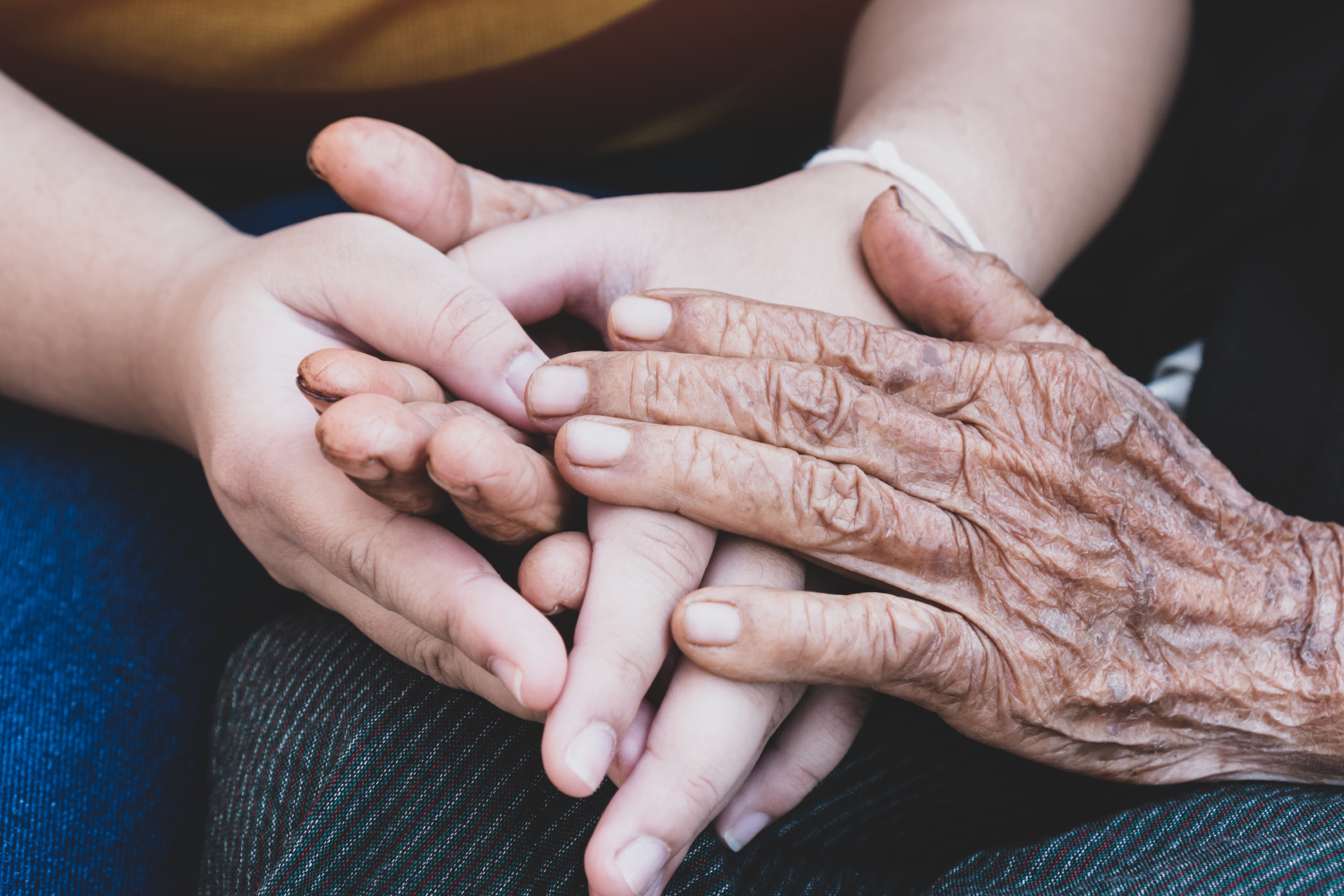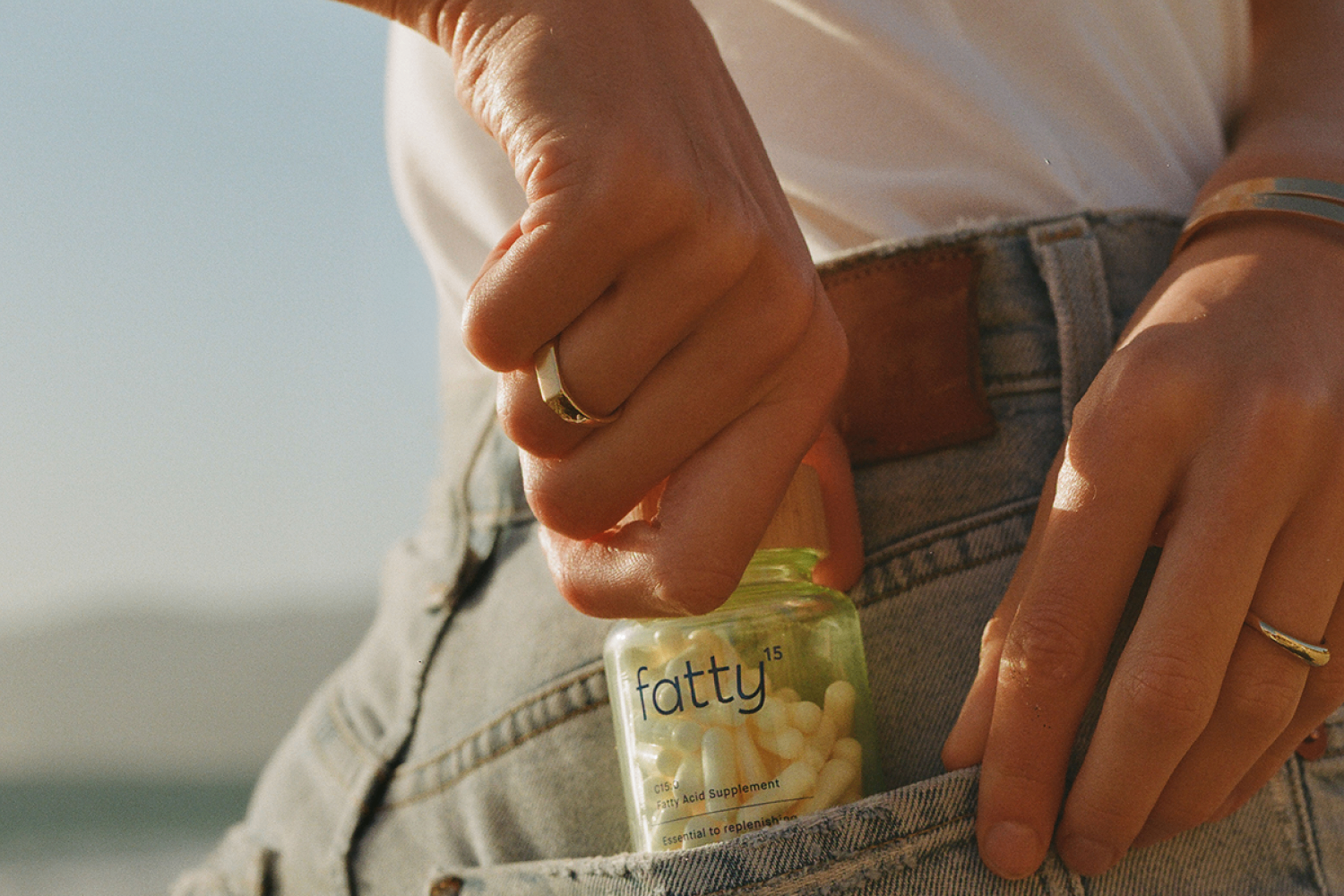
Dr. Eric Venn-Watson’s Highlights
The aging body can cause some interesting phenomena, most of which we usually aren’t excited to see! However, aging doesn’t have to happen as rapidly as it sometimes does, and that’s definitely the case with our skin.
The skin is the body’s largest organ, and it’s one of the first places we will physically “show” our age. Wrinkles, fine lines, sun spots, and sagging skin are all indications we are no longer in our 20s, but that doesn’t mean older skin can’t still be healthy and beautiful.
One of the complaints people have with their skin as they get a bit older is that it seems too thin. You may notice dark hollows under your eyes or concave areas on your cheeks where once there had been more “plumpness.”
Skin thinning is normal, and we’ll talk about what causes it. We’ll also talk about how the skin works and ways you can keep your skin looking youthful as you age.
What Makes Skin Look Young?
Your skin is made of two important proteins (and a lot of other biological structures and compounds). These two proteins, collagen and elastin, help keep your skin looking youthful and feeling firm, and cell turnover helps to make sure dead skin cells get purged and replaced with bright, new ones.
Collagen
Collagen makes up many tissues in your body. Tendons, ligaments, muscles, bones, and even the lining of your digestive tract all contain collagen. For your skin, however, collagen plays a major role. It’s foundational in your skin’s structure.
Collagen is the substance that keeps your skin feeling thick, firm, and plump. When you look at a child’s chubby cheeks, what you’re really seeing is collagen. As we age, our collagen production begins to decline. In fact, we lose about 1% of our collagen production each year after age 20.
That’s a small percentage, but by the time you reach age 50, you’re making 30% less collagen each year, which means your skin will naturally feel thinner.
Elastin
Elastin is another protein fiber that makes up our skin. Elastin is what makes your skin stretchy, or elastic. When you pinch your skin and it snaps back into place, that’s elastin doing its job.
As we get older and elastin production wanes, our skin isn’t nearly as taut as it used to be. Loss of elastin results in skin that sags or hangs. This can cause wrinkles to develop around your nose and mouth (called nasolabial folds) and under your eyes.
Skin Cell Turnover
Luckily, your skin is very resilient. It makes new skin constantly, which means newer, healthier-looking skin is always being created and pushed to the surface. This process is called skin cell turnover, and it refers to the speed at which your skin makes new skin.
When you are young, the process takes about two weeks. As we age, the process can slow to 28 days or longer. After age 60, it can take up to 50 days. The length of time it takes for new skin to be created plays a role in the thinning of your skin.
Without new, fresh skin cells to build the dermal layer, your epidermis will be thinner and more fragile than it was in your youth.
What Causes Thin Skin?
Loss of collagen, elastin, and a slower skin cell turnover rate are the biggest offenders in terms of thinning skin. There are, however, other factors that can cause your skin to become thinner, thus making age it prematurely: photoaging and free radical damage.
Photoaging
The sun gets a bad rap, especially when it comes to skincare. It goes without saying that ultraviolet rays can be harmful to your skin, and you need to protect your skin when you’re in sunlight. However, the sun is also crucial for your body’s wellness.
Vitamin D is created by your body when your skin is exposed to sunlight. It’s essential in helping your body properly digest calcium, and it also helps your skin repair itself.
If you expose your skin to the sun without sunscreen, you’ll get vitamin D… and photoaging.
Photoaging refers to the sun’s ability to prematurely age your skin. Photoaging causes your skin to lose collagen and elastin, resulting in skin thinning, and can also cover it with sunspots.
The sun’s ultraviolet rays are damaging because they’re a source of free radicals. Free radical damage doesn’t just come from the sun, either.
Free Radical Damage
Free radicals are unbalanced molecules that are forever in search of balanced molecules they can use to rebalance themselves. When they find these balanced molecules, they latch on, steal an electron, and leave the balanced molecule damaged.
Free radical damage causes skin to behave differently than it normally would. Because free radicals damage your skin’s DNA, your skin cells aren’t able to properly regenerate. They make collagen and elastin incorrectly, their cellular function slows, and the result is demonstrated by loss of skin firmness and elasticity.
Some free radical damage happens inside your body, but the majority of it comes from external sources like:
- Ultraviolet rays
- Cigarette smoke
- Pollution and smog
You can protect your skin from free radical damage by making sure you get antioxidants in your diet and using antioxidant-loaded products in your skincare. If you’re already getting a good dose of antioxidants, there are also other ways to protect your skin.
Solutions for Thin Skin
The anti-aging skin care market is a multi-billion dollar industry that focuses on “fixing” thinning skin through the use of topical creams, injectable fillers, muscle paralyzers, and, of course, surgical intervention.
The problem with these interventions is that they essentially treat the effect and not the cause of the problem. Additionally, none of the treatments you’ll find at a plastic surgeon’s office are permanent. Even a facelift procedure has to be repeated eventually because your skin continues to age.
A more viable option (and one that won’t cost you $10k every decade) is to provide support to your skin cells directly to help them function properly and work better, like they did when you were younger.
Antioxidants
Antioxidants help keep your skin protected from free radical damage. They work like a shield against your skin cells, blocking free radicals and offering one of their electrons so skin cells aren’t harmed.
Antioxidants are naturally found in vitamins like vitamins A, C, and E. You can get these essentials from your diet, but you can also find them abundantly in topical skin treatments. Most of the time, you’ll get all you need from your diet.
If you suspect you may have a deficiency, a simple blood test can help you find out.
Pentadecanoic Acid
You might not have heard about pentadecanoic acid. Until recently, it’s been flying pretty low under the radar.
Pentadecanoic acid (also known as C15:0) is an odd-chain, saturated fatty acid that you probably don’t get a lot of in your diet. That’s because for an entire generation as a society, we’ve been avoiding fat.
As it turns out, not all fat is bad.† Omega-3 fatty acids, for instance, are now sold as dietary supplements. However, most omega-3 supplements usually come with a fishy aftertaste and require a large dose.
C15:0 is different in its dosage, effectiveness, and aftertaste (hint: there isn’t any).
C15:0 is a sturdy little fatty acid that goes to work helping your cells regain lost function.†* The decline your cells experience as they age can be narrowed down to two main causes:
1. Flimy cell walls. Your cell walls protect your skin cells from external stressors (including free radicals). Aging cells have cell membranes that become weak, flimsy, and unreliable. C15:0 gets into your cell’s membranes and helps fortify and strengthen them, keeping them protected like they were when you were younger.†*2. Sluggish mitochondria. The energy your cells need to function comes from their mitochondria. Your cells’ mitochondria power them to carry out cellular processes necessary for producing more skin cells, making collagen, and elastin. When we get older, our mitochondrial function begins to decline, which results in slower skin cell turnover and slower collagen and elastin production.
C15:0 helps improve mitochondrial function by 45%, which can mean thicker, healthier skin.†*
Increasing your mitochondrial function and protecting your cell walls is crucial for attacking the cause of your thinning skin, not just masking the effects.
Elevate your cells. Elevate your self.
Get Fatty
You can get your hands on C15:0 without eating too much whole dairy fat, where it’s naturally found.
Fatty15 contains the pure, vegan version of C15:0, FA15™. With one small dose per day (100mg compared to 2000-3000mg of omega-3), you can support thinning skin at the cellular level.†*
Plus, fatty15 won’t just help your skin, it can benefit your entire body.†* Diving into all of your cells and supporting your body as it ages from the ground up, fatty15 lets you age on your own terms and helps you give your cells a fighting chance to keep up the pace as you get a little older.†*
Thin skin is a natural part of aging, but it doesn’t have to happen as quickly or as dramatically as it can. Fatty15 and a healthy diet can improve your skin, and your health and wellness with just one simple capsule per day.†*
Explore more about fatty15 and how it can support your wellness here.
Sources:
The Best Way You Can Get More Collagen|Cleveland Clinic
Vitamin D and your health: Breaking old rules, raising new hopes|Health.Harvard.edu
Eric Venn-Watson M.D.
CEO, Co-Founder
Senior Scientist, Co-Founder
Eric is a physician, U.S. Navy veteran, and Co-founder and COO of Seraphina Therapeutics. Eric served over 25 years as a Navy and Marine Corps physician, working with the special forces community to improve their health and fitness. Seraphina Therapeutics is a health and wellness company dedicated to advancing global health through the discovery of essential fatty acids and micronutrient therapeutics.
You May Also Like...
The Definitive Guide to Aging's Role in Human Longevity
Aging is a complex biological process impacting health and longevity, requiring a distinction between chronological age, biological age, and psychological age to understand its nuances
7 Proven Ingredients That Boost Anti‑Aging Benefits Naturally
The quest for healthy aging has evolved into evidence-based science, identifying specific nutrients that support cellular health and longevity.


